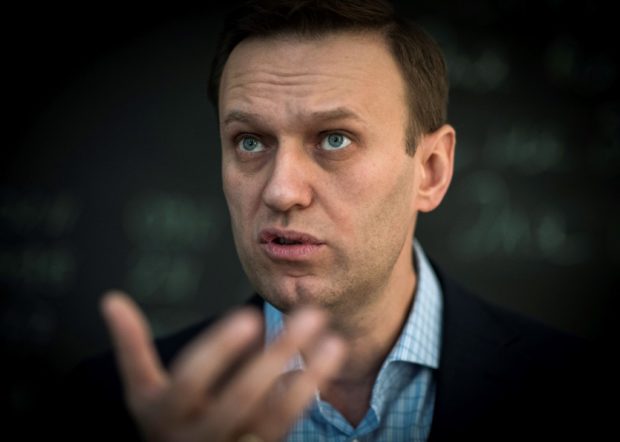Russia denies FSB role in Navalny poisoning

(FILES) In this file photo taken on January 16, 2018, Russian opposition leader Alexei Navalny speaks during an interview with AFP at the office of his Anti-corruption Foundation (FBK) in Moscow. – The Russian opposition leader Alexei Navalny was in intensive care in a Siberian hospital on August 20, 2020, after he fell ill in what his spokeswoman said was a suspected poisoning. (Photo by Mladen ANTONOV / AFP)
Moscow, Russia — Russia’s Foreign Minister Sergei Lavrov on Wednesday denied recent media investigations that alleged the country’s Federal Security Service (FSB) had followed and poisoned opposition leader Alexei Navalny.
“All this news is funny to read. But the manner in which this news is presented says only one thing: that our Western partners lack any ethical standards,” Lavrov said.
Several European labs in September concluded that Navalny, 44, was poisoned after he fell ill on a flight from Siberia to Moscow in August before being transported by medical aircraft to Berlin.
A joint investigation published earlier this week by several media outlets claimed FSB chemical weapons experts had followed Navalny for years, including on the day he was poisoned.
The investigative website Bellingcat together with CNN, Russian site The Insider, and Germany’s Der Spiegel on Monday published names and photos of the alleged men who tailed Navalny.
Article continues after this advertisementTheir investigation said the men are specialists in nerve agents and toxins, including the Soviet-designed poison Novichok, which European countries said was used against Navalny, Russia’s most prominent Kremlin critic.
Article continues after this advertisementDuring a visit to the Croatian capital Zagreb, Lavrov said the media reports prove Western countries’ “lack of any skills for normal diplomatic work and an unwillingness to comply with international legal norms when it comes to establishing facts”.
The joint report does not establish any direct contact between Navalny and the named agents and Russia has flatly denied any role in the Kremlin critic’s illness.
The European Union has imposed entry bans and bank account freezes on six people suspected of being responsible, including FSB chief Alexander Bortnikov.
The 44-year-old opposition leader has said he will return to Russia after making a full recovery in Germany.